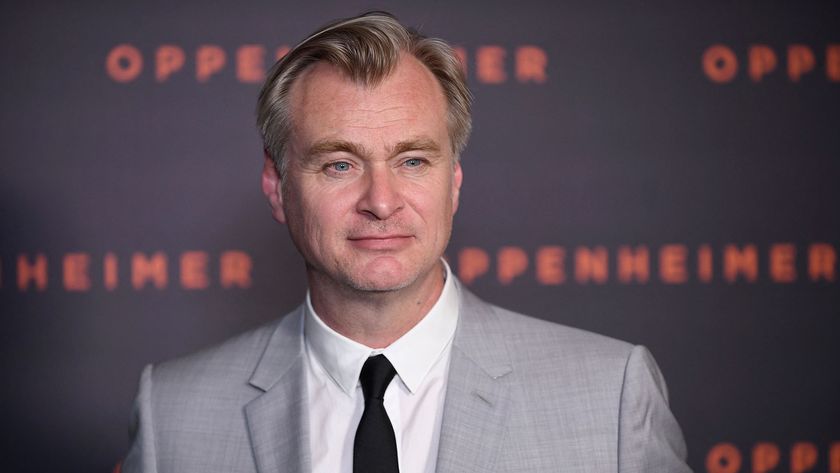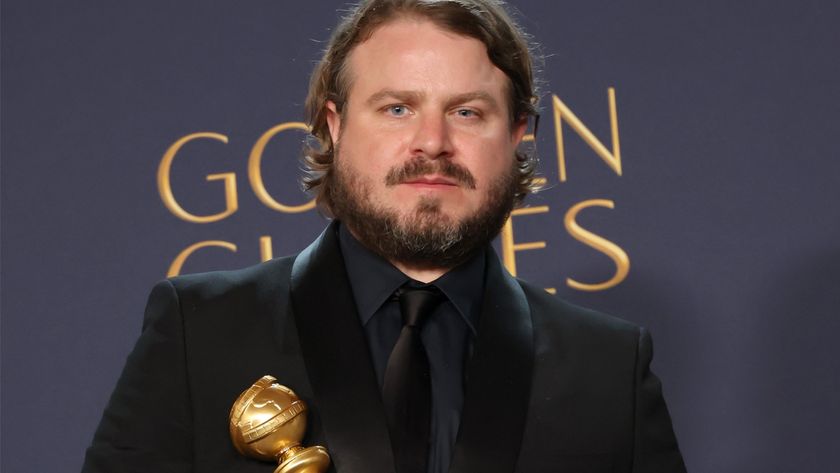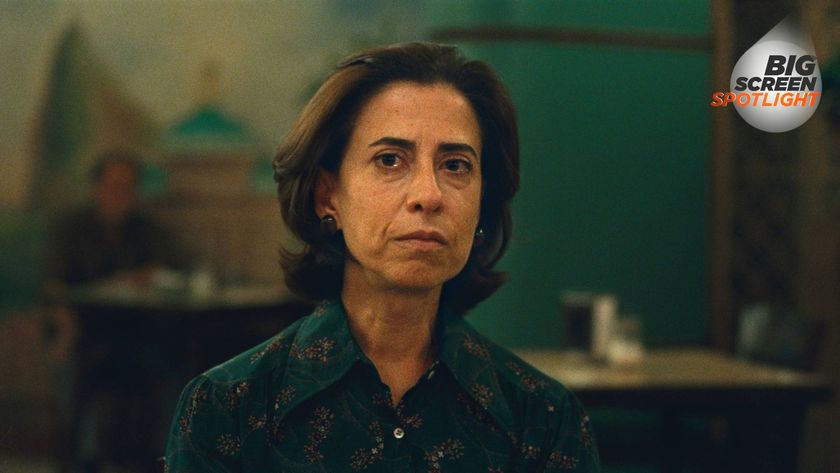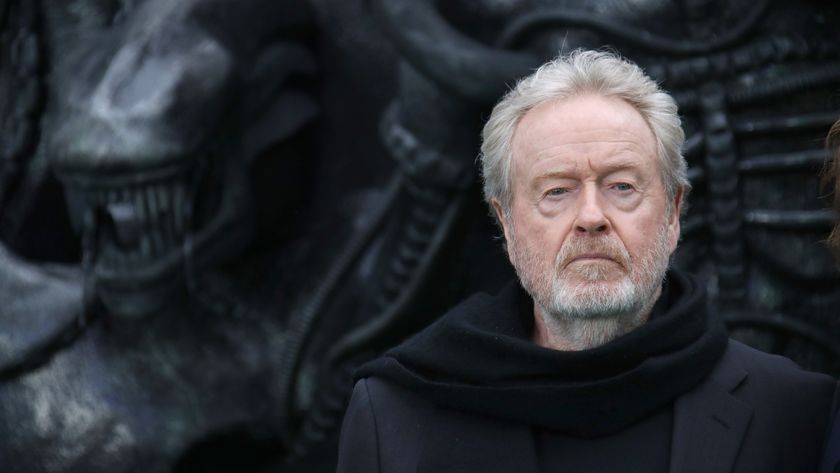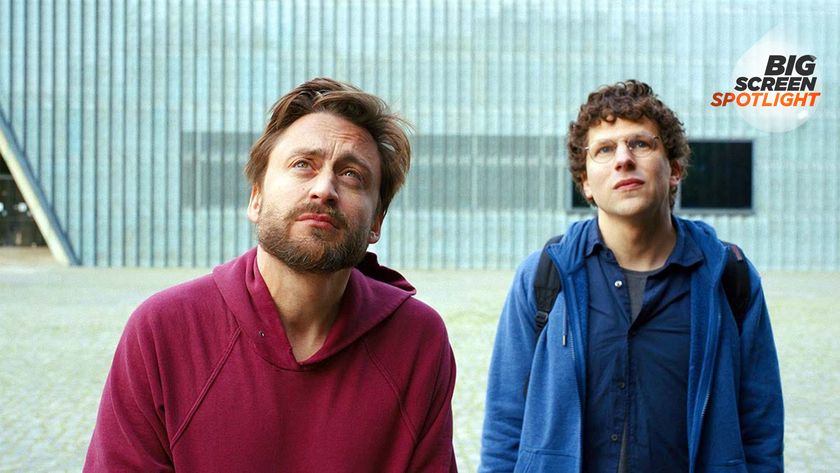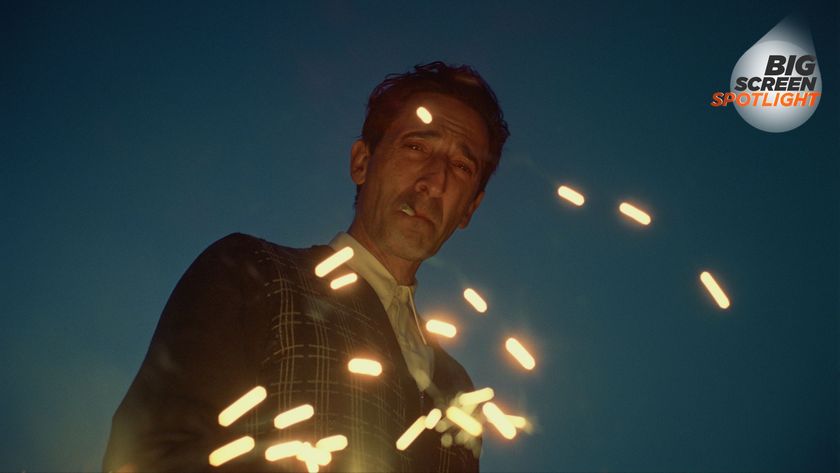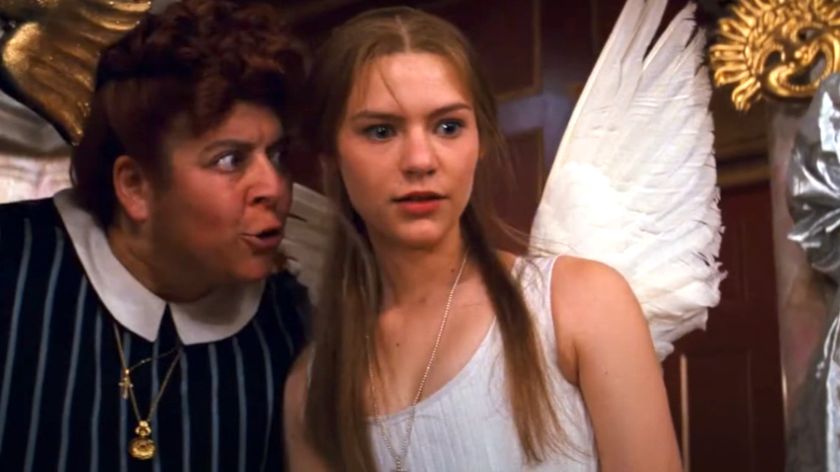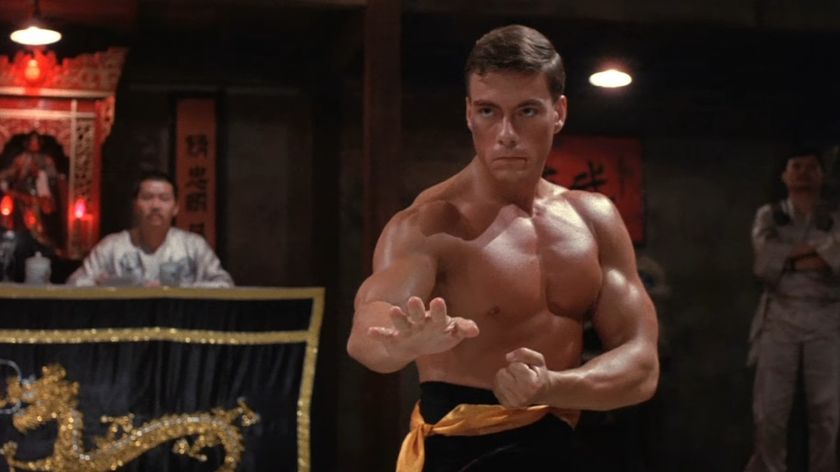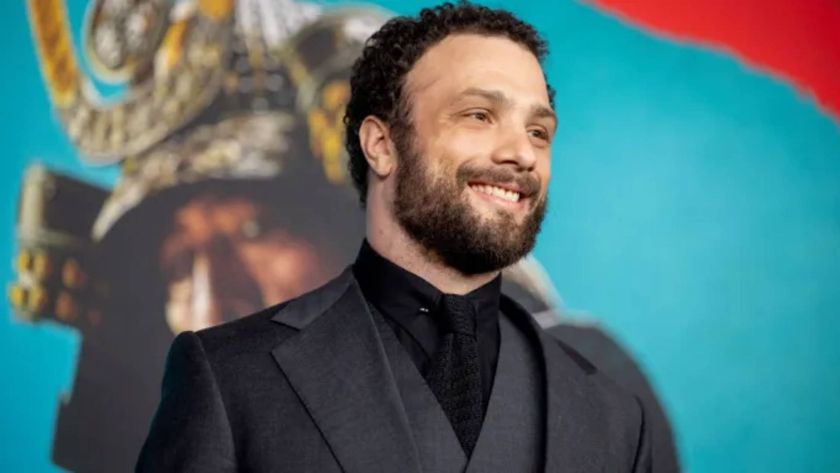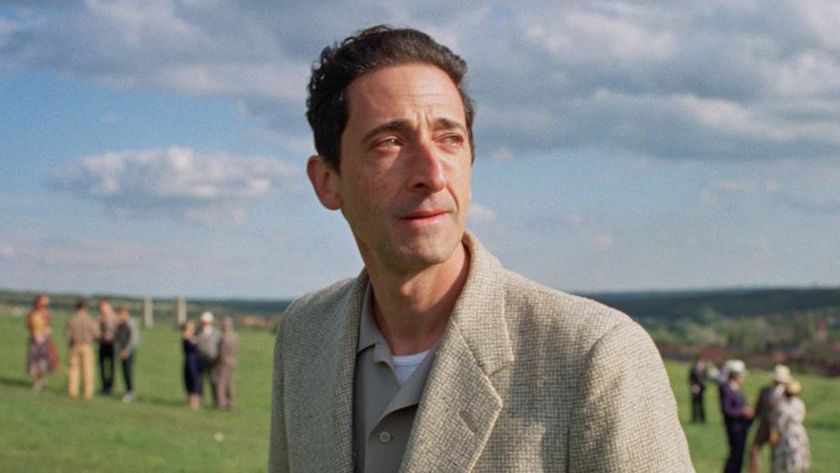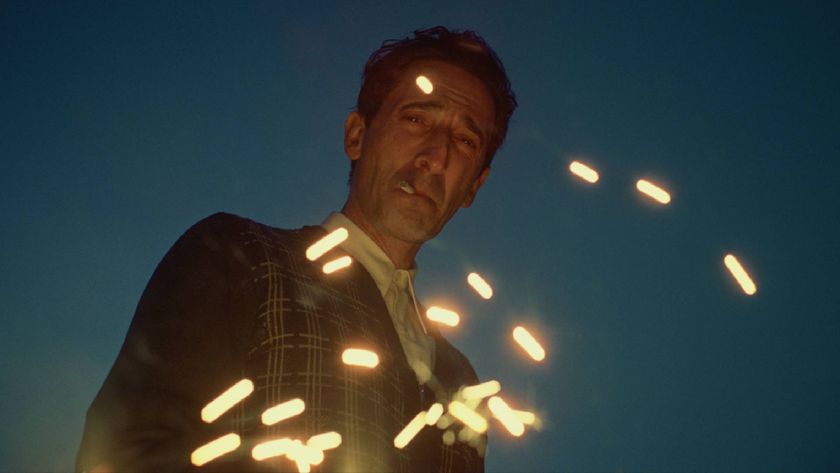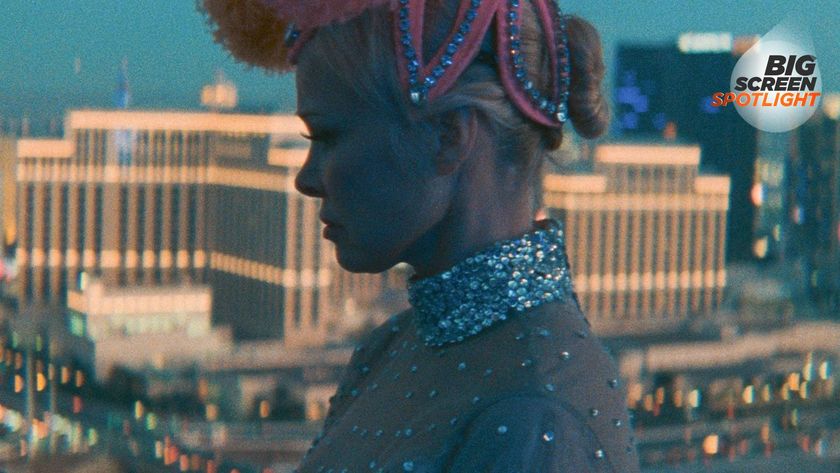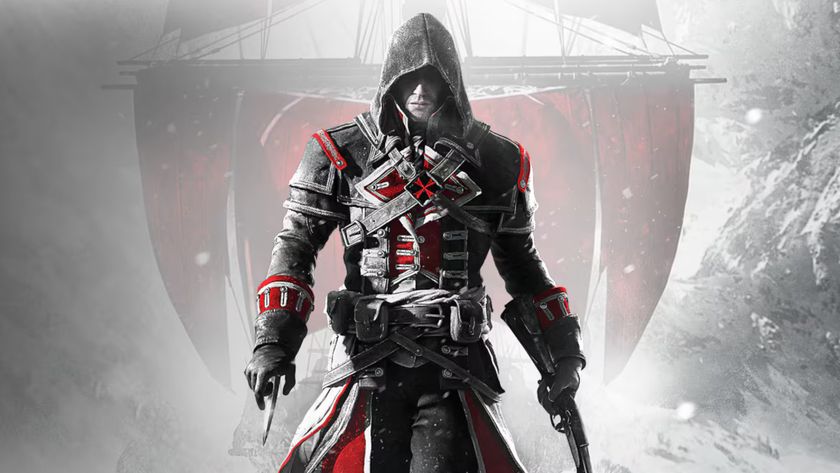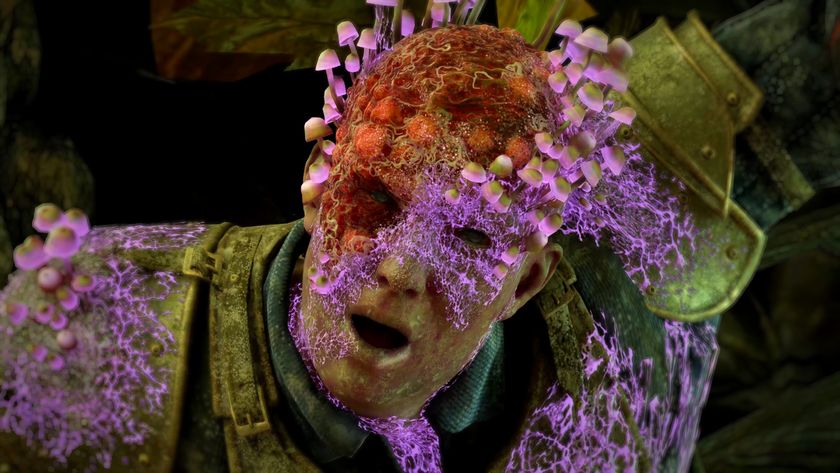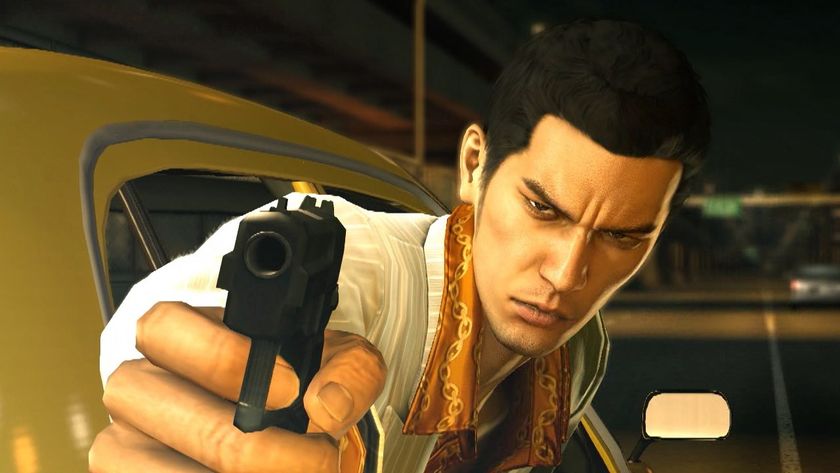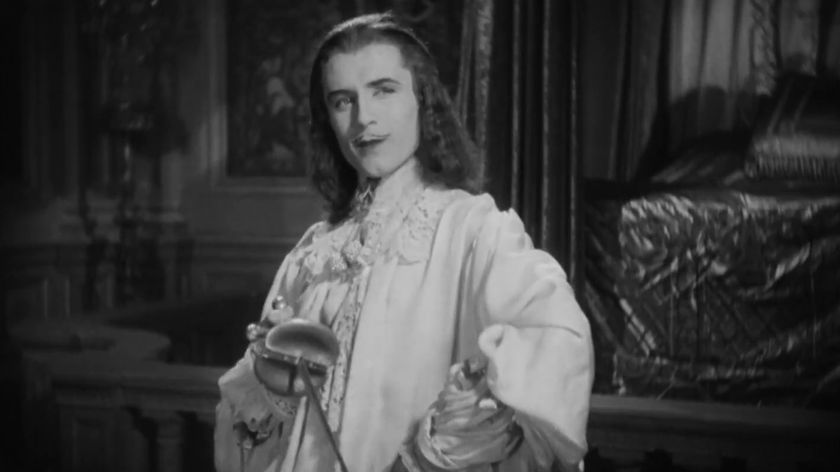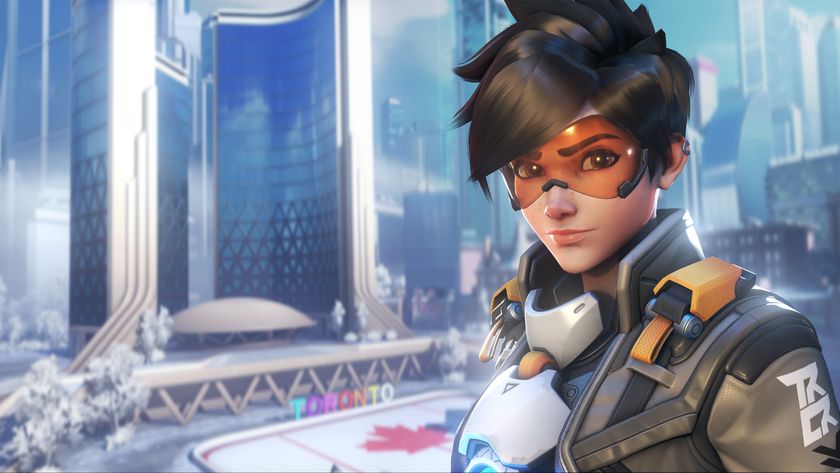Ridley Scott talks Napoleon, historical accuracy, and working with Joaquin Phoenix
Exclusive: Total Film sits down with Ridley Scott to talk taking on Napoleon Bonaparte in his biggest and most challenging film yet
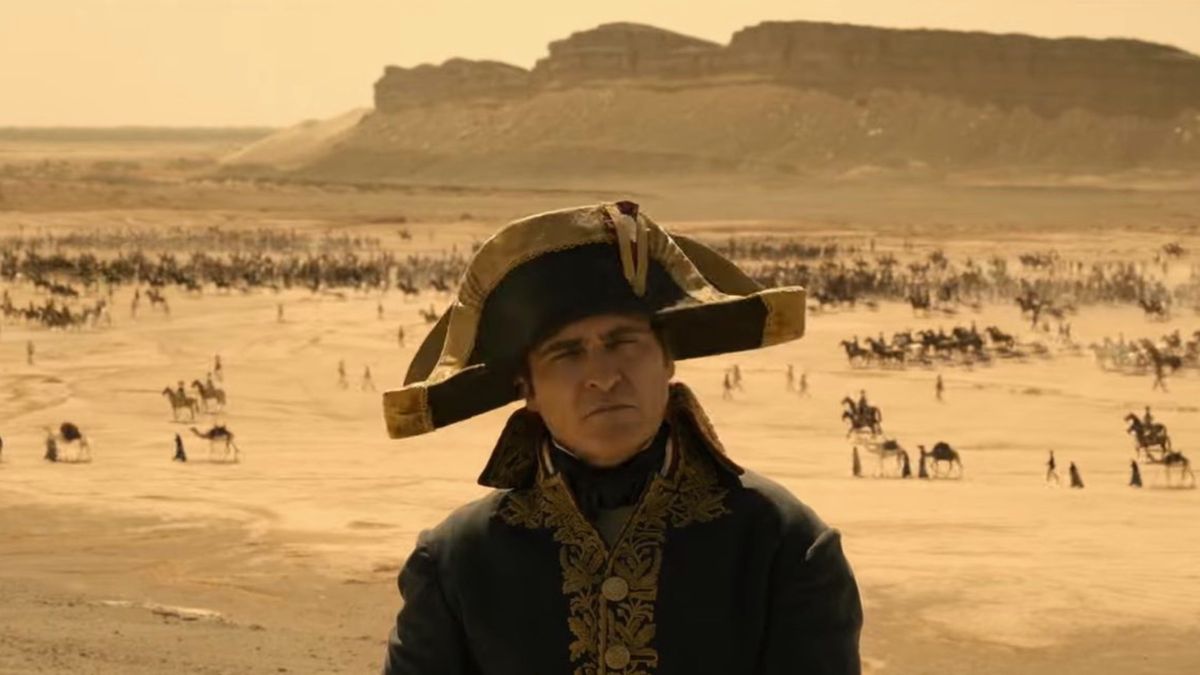
It takes cojones the size of cannonballs to make a film based on the tumultuous life of Napoleon Bonaparte. Not only will you be following in the deep footsteps of Abel Gance’s five-and-a-half-hour Napoléon (1927) and Sergei Bondarchuk’s seven-hour War and Peace (1966/7) – two of the masterpieces of cinema – but you’re daring to tread where the great Stanley Kubrick failed.
After conquering the stars with 2001: A Space Odyssey, the visionary filmmaker famously set out to make his Napoleon film. He read extensively. He scouted far-flung locations. And he cajoled the Romanian People’s Army into committing 40,000 soldiers and 10,000 cavalrymen for the battle scenes.
But Kubrick, who promised "the best movie ever made", was ultimately defeated, brought to his knees by the prohibitive cost of the mighty endeavor. Enter Ridley Scott. Scott, of course, mounts gargantuan productions (Gladiator, Kingdom of Heaven, Exodus: Gods and Kings) like they’re bread-and-butter soldiers to be dipped in his morning eggs. Whip Napoleon into shape? No biggie.
- Christopher Nolan says Gladiator II is one of his favorite films of 2024: "Why are there sharks in the Colosseum? Because we demand them"
- The Brutalist director hopes his new movie proves Oppenheimer's commercial success wasn't a fluke: "People are actually interested in all of these things that sales companies frequently tell you are like box office poison"
"I knew Stanley Kubrick," he tells Total Film. "The script was sent to me by his estate, to say: 'Do you want to look at this?' But it was birth to death – the whole nine yards. Napoleon did 66 battles. You can’t do 66 battles [on screen]. So you’ve got to make some choices."
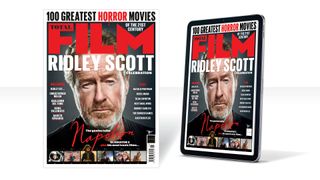
This feature first appeared in Total Film magazine - Subscribe here to save on the cover price, get exclusive covers, and have it delivered to your door or device every month.
Decisions decisions
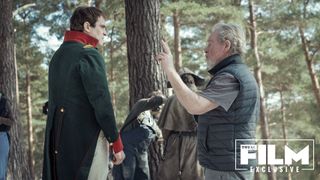
Scott announced that he’d be turning his attention to Napoleon on 14 October 2020, the same day that The Last Duel wrapped filming. He works fast, and had begun the 62-day shoot – yes, just 62 days, ridiculous for a film of this scale – by February 2022. By then, all of the aforementioned choices were made. Gone was the childhood ("Third-rate aristocracy without money, from Corsica," shrugs Scott).
The film would focus on the years of 1793, when Napoleon routed the Royalist rebels in the siege of Toulon, and when Marie Antoinette was executed by guillotine, to 1821, when Napoleon died in exile on the island of St. Helena. It would stage six major battles, including, naturally, Waterloo, but the key to unlocking this unwieldy war chest was in making it a character study. The focus would be the relationship of Napoleon and Joséphine.
"He was such a powerful man who was, without question, a dictator, and hardly benevolent – what he said, had to go," muses Scott. "And yet he was vulnerable on one side of his life to a woman. He was enchanted, blown away. I don’t think he was a particularly sexually driven kind of character. Joséphine, as a courtesan, was physically impressive, and had survived in jail. She was put in jail when her husband [Alexandre de Beauharnais, a politician and general of the French Revolution] was executed. The children were taken away from her. In jail, she learned that to avoid the guillotine, you better get pregnant. So she had to, as it were, put herself about, to find the most agreeable man she might want to bed with, and try to get pregnant.
Sign up for the Total Film Newsletter
Bringing all the latest movie news, features, and reviews to your inbox
"The best way was finding a man who would love her, and who would pay," he continues. "She realized she had no other choice than to accept this mediocre lieutenant, who actually was on the verge of becoming a general because he had taken Toulon. He adored her, which was the beginning of his letters when he was away from her, which were almost childlike in their sexuality and their naughtiness. By the time he started to grow in stature and rank, she started to pay attention. He became the Emperor of France, and she became the Empress. She’s now clearly impressed. Does she love him? I don’t know. Does she need him? Certainly. So, already, I think this story is more interesting than lots of battles."
Scott and his team showed due diligence when it came to their deep-dive research of the man that the filmmaker calls "the most researched or over-researched person in history". But between the agreed-upon facts were gaps and contradictions, meaning dots needed to be joined. Applying a bit of guesswork is not something that Scott is about to fret over. "The rest becomes conjecture," he shrugs. "I’ve done a lot of historical films. I find I’m reading a report of someone else’s report 100 years after the event. So I wonder, 'How much do they romance and elaborate? How accurate is it?' It always amuses me when a critic says to me, 'This didn’t happen in Jerusalem.' I say, 'Were you there? That’s the fucking answer.'"
Acting stations
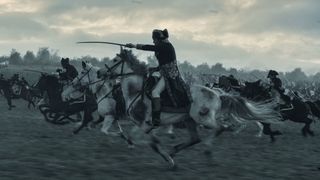
To play the big man – or rather the short man (though in truth, 5ft 7in wasn’t short for the time, and the Brits wickedly exaggerated Napoleon’s diminished stature) – Scott turned to Joaquin Phoenix. The pair had previously teamed on Gladiator, when Phoenix played Emperor Commodus. Scott had dangled a few things since, but Napoleon was the one that made the mercurial actor bite. Here was a role of real riches for any actor who longs for complexity. Just as Napoleon was an autocrat who instigated many liberal reforms, so contradictory elements warred within him: ambition, rampant ego, doubt, loyalty, violence, vulnerability. Jodie Comer, meanwhile, was cast as Joséphine, also a plum role full of slippery contradictions. But the Last Duel actor had to withdraw due to a schedule clash when COVID-19 forced filming dates to be rearranged. In her place came Vanessa Kirby.
"Now, as an Emperor, he has to have a successor," says Scott of a film that hops between bedroom and battleground. "But the successor wasn’t coming from her. That was impossible. Because of the past history of probably several abortions. And abortions, in those days, were brutal. They used sulfur and arsenic. So they had to divorce. The divorce was emotionally catastrophic for Napoleon, who hated having to do that, but the pressure was clear: he had to do it."
It makes for meaty drama that demands both actors bring their A-game. Only how did it work? Scott is renowned for shooting fast, from storyboards, while Phoenix is the polar opposite, insisting on exploring every line from every angle, and refusing to hit marks.
"When I’m reading a scene, I’m getting the geometry and even the movement," states Scott. "So I’ll start drawing the dialogue scene. And you’ve got to watch it with actors. They’ll say, 'Hang on, can’t we at least talk about it?' I’ll say, 'Well, we can talk about it. But do you like this?' They go, 'Yeah.' So I say, 'Why are we talking about it? Let’s fucking do that.'"
Scott will never admit it, but he has a tender side. He might pass off the many great performances in his films with a single throwaway sentence ("I’m very good at casting"), but you don’t get characters like Thelma and Louise if a filmmaker isn’t skilled with actors, and full of respect for them. Primarily thought of as a stylist, the director can break down a scene’s mechanics and dynamics with the best of them. And so it was when Phoenix came to him two weeks before shooting to say that he was lost, and together they workshopped every scene.
"Joaquin keeps me honest," Scott grins when it’s put to him that Phoenix would surely never accept turning up on set to recreate storyboards. Not many people would dare to contradict Scott, with all of his knowledge and achievements, his decisiveness and bulletproof self-confidence, but Phoenix is one. "He will say, 'You really want to do this?' I will say, 'Yeah.' Joaquin and I have a very good relationship because it’s a tit-for-tat discussion. My biggest compliment ever will be, 'Christ almighty, I never thought of that.' That’s the best compliment."
Battlegrounds
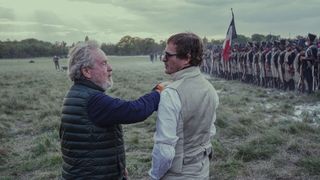
And so to the battles. They are, after all, what the punters will come for, even if they stay for the politicking and the pillow talk. A brilliant commander whose campaigns are still studied at military academies worldwide, Napoleon took on the Austrians and their Italian allies, led a military expedition to Egypt, fought the War of the Third Coalition against the United Kingdom, the Austrian Empire, the Russian Empire, Naples, Sicily and Sweden, and more, much more.
As Scott said up top, 66 battles. Bonaparte was responsible, you might say, for the six million civilian and soldier deaths during the Napoleonic Wars – this biopic is no celebration, and is at pains to avoid cliches such as rousing speeches – but his strategizing was unmatched. In the Battle of Austerlitz, astonishingly recreated here, he brought the War of the Third Coalition to a rapid close by luring enemy forces onto an iced lake then bombarding it with cannon fire.
In Napoleon, each battle scene is staged differently, and each one wows. Scott, like his subject, is a master strategist, and even after 128 years of cinema and countless stunning battles mounted by the likes of Welles, Kurosawa, Lean, Peckinpah and Jackson – not to mention Scott himself – he manages to capture new images that hit like a musket ball between the eyes.
"Thank you for saying that, but that’s who I am," he says. "As a commercial director [in the 70s and 80s], I was very, very successful. I used to get shipped out to the US regularly to shoot commercials like this star bloody commercial director. I tended to be very action-orientated. I was always shooting sport. I shot a lot of American football. The action thing, I think, also comes from…" A rare pause. "The best thing for my career I could ever have done was to go to the art schools I went to. I can really draw. After seven years of art school, you bloody better well be able to. I’ll draw all my own storyboards. Every frame is drawn from close-up to medium shots. The locations I haven’t found yet – I’ll imagine the location So we’ll look for that location. Visual narrative is my strength. I find it very easy, therefore, to handle eight or 11 cameras at once."
Scott used to shoot two commercials a week and would operate the camera on all of them. He took that into his filmmaking. "I was the only operator – one camera – on Alien," he says. "I was the only operator – one camera – on The Duellists. Legend. Thelma & Louise. On all these things, I operated the camera. And so I know exactly what a lens will give me. Today, that has evolved into six to eight to 11 cameras. So I’ll sit in my trailer. I’ll have monitors like this [spreads arms to indicate a bank of screens]. I’ll be sitting there, talking to each operator."
He’s warming to his theme. "Every scene is geometry. By having 11 to 14 cameras, we shot Napoleon in 62 days. I’m doing Gladiator 2 now in 54 days, because I’m not doing 50 takes with one camera, on one shot, and then turning around. This normal fight [scene] that could take anything up to a month, I’ll take six days. So the savings are colossal." Yes, if any man was going to command Napoleon into shape, it was Scott. What is it they say about film directors? They need to be like a general in charge of an army.
Napoleon opens in theaters on November 22, 2023. For more upcoming movies, check out our guide to 2023 movie release dates.
This feature first appeared in issue 343 of Total Film, which you can buy online here.
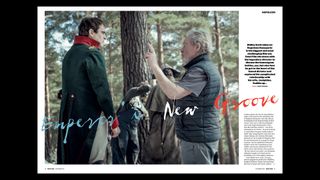
Jamie Graham is the Editor-at-Large of Total Film magazine. You'll likely find them around these parts reviewing the biggest films on the planet and speaking to some of the biggest stars in the business – that's just what Jamie does. Jamie has also written for outlets like SFX and the Sunday Times Culture, and appeared on podcasts exploring the wondrous worlds of occult and horror.
